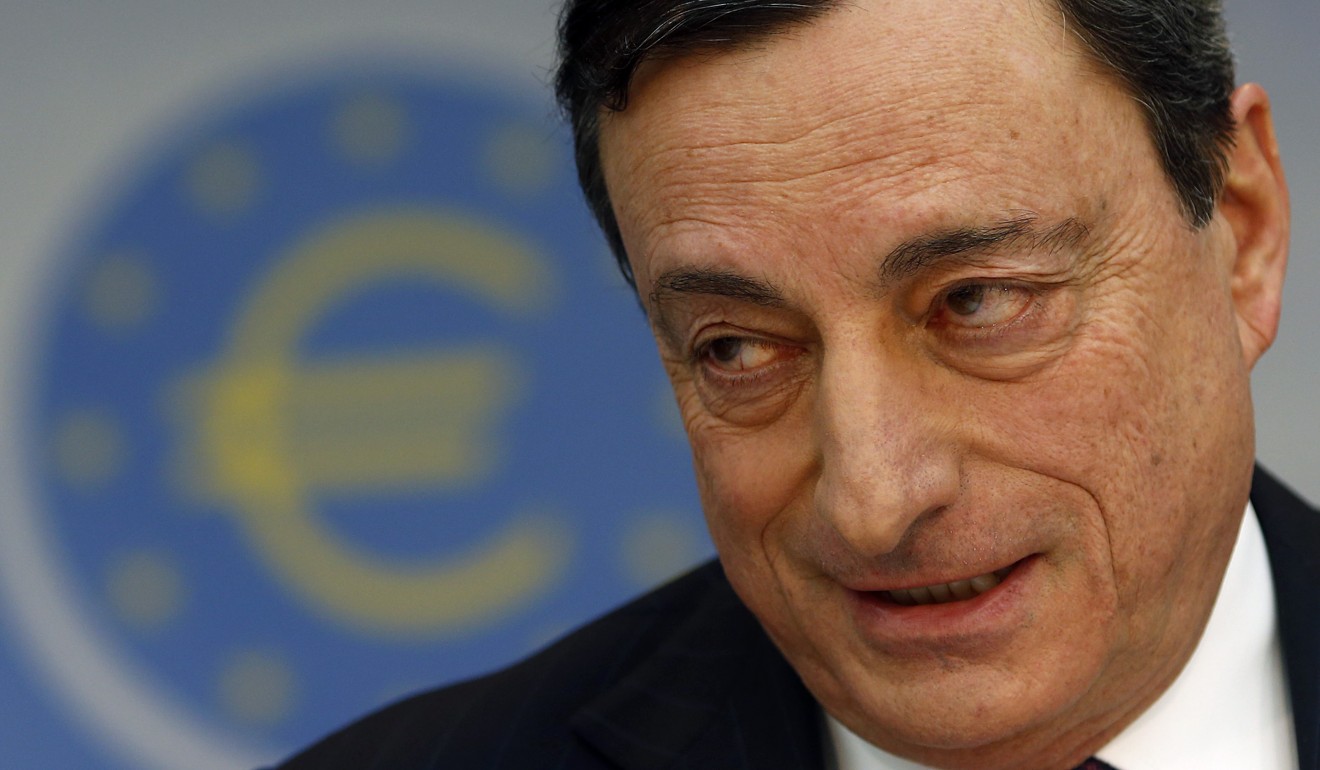
Markets unprepared for a Europe without Draghi and Merkel
International investors have a blind spot: the looming departure of the two dominant figures in European politics and finance

The countdown has begun. On Monday, Luis de Guindos, Spain’s finance minister, was appointed vice-president of the European Central Bank as part of a sweeping shake-up of the six-member executive board of Europe’s monetary guardian, which will culminate in October 2019 when Mario Draghi, the ECB’s president, steps down.
On the same day, German chancellor Angela Merkel, who is struggling to secure approval for a new coalition government after suffering a sharp fall in support in last September’s parliamentary election, appointed a close political ally to the post of secretary general of her Christian Democrat party as she starts to plan her succession.
While financial markets have become increasingly bullish on the outlook for Europe, cheered by strong and broad-based growth and the victory of the pro-European Emmanuel Macron in France’s high-stakes presidential election last year, international investors have a blind spot: the looming departure from the international stage of the two dominant figures in European politics and finance.
It is difficult to overstate the influence Merkel and Draghi have exerted over the 19-member euro zone since the bloc was engulfed in a sovereign debt crisis in 2011 which nearly tore Europe’s monetary union apart.

Draghi single-handedly put an end to the panic in euro zone government debt markets by pledging in July 2012 to “do whatever it takes” to preserve the integrity of the single currency area.
Merkel, who supported Draghi’s plan to effectively backstop the bond markets of Italy and Spain (Europe’s third and fourth-largest economies) and warned that “if the euro falls, Europe falls”, gained the trust of her nation’s taxpayers by insisting that any German-led financial support for southern Europe’s vulnerable economies must go hand in hand with tough economic reforms.
This one-two punch of “Super Mario” and “Mutti”, as Draghi and Merkel are often nicknamed, put a stop to the euro zone debt crisis and paved the way for the bloc’s impressive recovery.
Yet over the past couple of years, and particularly since Germany’s election in which Merkel’s party suffered its worst result since 1949 and the far-right Alternative for Germany party gained nearly 13 per cent of the vote, the Merkel-Draghi effect has begun to lose its potency.
The much more uncertain political environment in Europe’s leading economy comes just when the ECB is preparing to withdraw monetary stimulus, probably at the end of this year
This is partly because the euro zone economy has been growing robustly, masking the long-standing structural and governance problems that continue to bedevil Europe’s shaky monetary union.
On Wednesday, the publication of a purchasing managers’ index survey by IHS Markit, the data provider, showed that the bloc is growing at a quarterly pace of nearly 1 per cent, the fastest clip since 2011.
Yet it is mainly because Europe is slowly moving into the post-Merkel and post-Draghi era.
Merkel, whose authority was severely undermined by her controversial decision in 2015 to let in more than a million refugees, is now fighting for her political survival.
Not only is her Christian Democrat party blaming her for its humiliating performance in the election, Merkel is under fire for making too many concessions to the opposition Social Democrats in her bid to form a coalition government.
Many in her party are now openly saying that the woman who has governed Germany for the last 12 years, and who is still held in high regard abroad for standing up for liberal values in a Trumpian world, needs to pick her successor.
Merkel fatigue will make it much more difficult for Germany to agree the necessary reforms for the euro zone to integrate more closely to prevent another debt crisis from erupting.
Optimists point out that markets stopped fretting about the weak governance of the bloc soon after Draghi’s game-changing “whatever it takes” speech in 2012, which was followed up by the launch of full-blown quantitative easing (QE) in 2015.
Yet the much more uncertain political environment in Europe’s leading economy comes just when the ECB is preparing to withdraw monetary stimulus, probably at the end of this year.
What’s more, the main candidate to replace Draghi when his term expires in September 2019 is Jens Weidmann, the hawkish head of Germany’s central bank and a fierce critic of QE.
Given how ultra-sensitive markets are about the normalisation of monetary policy, mounting speculation about a Weidmann-led ECB at a time when Europe’s central bank is removing stimulus could be the trigger for renewed concerns about the sustainability and integrity of the euro zone.
The turnaround in sentiment towards Europe since 2012 owes much to the policies of Merkel and Draghi. Investors would be well advised, therefore, to start to position themselves for a euro zone without Super Mario and Mutti.